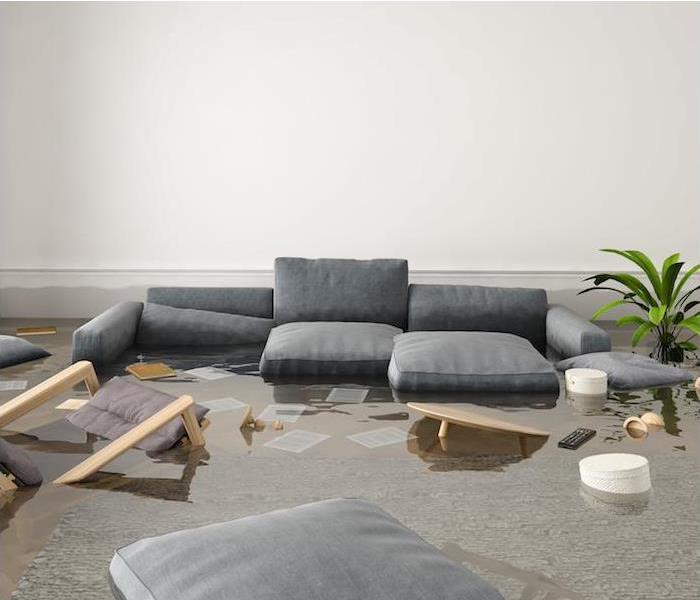Tips to Help Protect Your Home From Water Damage | SERVPRO of Western Dutchess County
2/15/2019 (Permalink)
Water damage has proven to be one of the most costliest yet common disasters a home can experience. From a burst pipe to a malfunctioning dishwasher or storm damage, there are countless ways water damage could occur in your home.
While water damage can be an especially common issue for homeowners to deal with, there are plenty of ways you can help protect your home.
Protecting Your Home From Water Damage
Water damage is a huge hassle to deal with, it can have a long-term impact on your home, one of them being mold. It’s one of the most common side effects of water damage because it begins to grow and flourish within 48 hours of exposure to moisture.
When beginning to think of ways to safeguard your home against water damage, it might be easier if you break it down by areas of impact. These areas could include basements, kitchens, bathrooms, flooring and ceilings.
In the basement, you can prevent water damage by preventing water seepage. Do this by resealing vulnerable areas of the basement, making sure water drains away from your home and installing a backwater valve.
Your kitchen and bathrooms can experience water damage due to plumbing issues and appliance failures.
Be sure you:
- Inspect your appliances regularly, especially the hoses and faucets
- Check to make sure there are no leaks in the seals or caulking around your showers and tubs
- Know where the main water shut-off valve is in your home
- Don’t leave the house while the washer or dishwasher is running
There are things you can do to protect the possessions in your home from water damage, but don’t be surprised if it is not always possible. Use waterproof bins to store items and keep items stored on shelves up off of the floor.
How to Clean Up After Water Damage
If your home does experience a water damage situation, there is a good chance you can salvage items that can be dried out within 48 hours.
Be sure that you contact your insurance company immediately after the water damage situation and evaluate the extent of the water damage in your home as well as identify the type of water that is involved.
The three types of water are:
“Clean” water. Can be from rain, condensation, leaky pipes, etc.
“Gray” water. Slightly dirty water from dishwashers, washing machines, clean toilets, etc.
“Black” water. Water from sewage or serious flooding from nearby rivers, etc. This water can cause serious health problems.
Removing all wet items from your home and getting it dehumidified and dried out after a water damage disaster is important. You will then need to thoroughly clean and disinfect all remaining materials.
Here’s a tip from the pros: Freeze wet books, photos and papers in a frost-free freezer, allowing you extra time to deal with them after everything else has been taken care of. This prevents mold and mildew from developing and causing more deterioration. Once able, remove them from the freezer and air-dry or fan-dry the pages.
It may seem like recovering from water damage is an overwhelming and slightly impossible task, but it doesn’t have to be. You can call on the highly trained experts at SERVPRO® of Western Dutchess County, at 845-831-3600. We are here to make it "Like it never even happened!"





 24/7 Emergency Service
24/7 Emergency Service
